In this post, we have written all you need to know about solar, from a customer’s point of view. Without wasting any minute of your time, lets get into it.
1. How do solar panels work?
Solar panels collect and convert energy from the sun to electricity for use in our homes.
If you are new to solar technology, please read on and learn.
Firstly, we are going to study components in a solar panel and then look at how it works. Do not to be frightened by some new words you will read in this article. These are just words and they can sound strange because we do not use them in our everyday language. Just take them as new words.
Solar panels are made of small pieces of solar cells connected together to make a solar panel. In turn, solar cells are made from a substance called silicon, and the silicon also contains small particles that scientists call electrons. When the electrons in the silicon are energized, they start to move, and that is when we have electricity. Therefore, in order to generate electricity, we need to have some form of energy that triggers the movement of electrons inside the silicon.

So how do solar panels give us electricity?
As we mentioned earlier, electricity is created when some electrons inside silicon are triggered to move. Small packets of energy from the sun called photons, are the ones that trigger the electrons inside silicon to move. These photons come in the form of sunrays, and that is why solar panels only work when there is sunshine. Therefore, the amount of electricity that a solar panel gives depends on the intensity of the sunshine, as well as the number of solar cells the solar panel has.
For example, when it is cloudy, it means there is limited number of photons from the sun that are reaching the surface of your solar panels. That way, your solar panels will start to generate less electricity. The same applies when it rains and when the sun goes down.
In the same fashion, many 100watt solar panels have 30 to 32 solar cells whereas many 330watt solar panels have 72 solar cells. So, as can be seen, a 330watt solar panel gives us more power because it has more solar cells connected in it. Therefore, the more the solar cells a solar panel has, the more it has the capacity to generate some electricity.
Components on a solar panel

Now that we now understand how solar panels work, we can now appreciate the other components on a solar panel.
For instance, the cables behind every solar panel serves as a passage of electricity from the solar panels to your home appliances.
The frame gives your solar panel a rigid stance against damage and adverse weather conditions. It also houses the silicon used to make the solar panel
The top glass is made transparent and anti-reflective to ensure that all energy from the sun that hits the solar panel’s surface is directed to the silicon inside. The glass is also made tough to protect the unit against sizeable impacts and weather elements.
for further reading…
We wrote about all you need to know about solar on best panel between Mono and Poly solar panels, click here or use the button below:
To read about the best solar panels installed in Zimbabwe in 2020, click here
As a general person, I reason this is all you need to know about solar, concerning solar panels. All said, is there a reason why you should be motivated to install solar? Kindly read on.
2. Why should I go solar?
From our first discussion, we have seen that all you need to generate electricity from your solar panels is the sun. Now, who of us has ever paid anything so that the sun shines? Absolutely no one! In Zimbabwe, the sun is FREE and abundant. This means that the first and foremost reason to go solar is because you can generate your electricity free of charge. What are saying?

For example, let us say you have bought a car. This can mean that you can now ride to wherever you want without paying anyone. But is that really so.
Well, maybe you almost forgot that you will need money for some fuel. So, as you will be driving your car, you need to part with some money for fuel, making driving your own car costly. Petrol is not a free resource, and you need to constantly pay for it. We also have not included money for wearing tyres, oils, insurance and government road license. What about toll fees and long queues? The list is endless. But, how about solar?
Once you have installed your solar panels, the sun will rise and fall on its own forever. It is like buying a car and get awarded an unlimited amount of fuel supplies for free. The fuel is free and abundant. Also, a solar panel can last you as much as 25 years generating electricity! Is that not a reason to go solar?
for further reading…
Besides solar being a free source of energy, solar energy is very clean and sustainable. However, there are more benefits and reasons to go solar here. We wrote about all you need to know about solar concerning more reasons why you should go solar.
After all, I am sure you have heard that to build a successful solar system, you need an inverter. What do inverters do, and what are the different types of inverters. Please read on and learn.
3. What do solar inverters do?

A solar inverter is one of the main components in a solar system. But, for us to appreciate what an inverter does, we first need to understand the two types of electricity available.
There is AC power and DC power on 2 types of electricity.
AC power is the type of electricity we normally use to power our items like our microwaves, stoves, blowers, desktop computers and lighting etc. This is also the type of power we get from Zesa. Many electrical gadgets in our homes use this type of electricity called AC power.
Then for the DC power; it is the type of electricity we normally use to power our portable gadgets like torches, bicycle lamps, portable radios, mobile phones and laptops. Basically, every electrical gadget with a battery uses DC power. The beauty about DC power is that it can be stored in batteries, and that is why it is used mostly in portable appliances.
Now what does all this have to do with your solar inverter?
What the inverter does.
Your solar panels generate DC power and it is therefore difficult for you to power many of your home appliances from DC power. That is when your solar inverter comes into play. It then converts that DC power from your solar panels into AC power. This will then enable you to power all appliances in your home, because many of them require AC power.
Another function of the solar inverter is to change the energy stored in your solar batteries to a usable form for your home appliances. This is also very important because energy stored in your batteries will be DC Power. Since you cannot power your many home appliances directly from the batteries, your inverter will also do this work for you. It also changes DC power from the batteries to AC power.
As solar technology advances, we are also seeing some inverters actually being used to charge our solar batteries. Some inverters are now capable of charging your solar batteries from your solar panel as well as from your Zesa mains. These inverters have made it possible to store the power from Zesa in the batteries for later use. Subsequently, we are seeing that inverters play quite an important role in your solar system. They come in different types. As a result, this brings us to our next question: What are the different types of solar inverters?
4. What are the different types of solar inverters?
There are basically 3 types of inverters, and these are; off-grid inverters, grid tied inverters, and hybrid inverters.
Off-Grid inverters

Starting with off-grid inverters; they are used on solar systems that does not need the utility supply to work. They work totally off the grid, as the name implies, and you can use them out there in your Kumusha where there is no Zesa. These inverters usually work when they are connected to a battery. Off-grid inverters power your appliances mainly by converting power stored in your batteries to a usable form of your appliances. You can use them anywhere, as long as you have a method of charging your batteries. Normally, a solar charge controller must be used together with an off-grid inverter.
Grid- Tied inverters

Secondly, there are grid tied inverters. These inverters are also called PV inverters. These inverters only work when a feed from the utility line is present. This means that when Zesa is off, these inverters will not work. They are normally used with the aim of cutting an electricity bill.
Instead of running on Zesa all the time, you can actually run your appliances partly from solar and supplement with Zesa when energy coming from your solar panels is not enough. In other instances, you can actually supply Zesa with some power when your solar panels are generating more than what you need. This can be done under a program called Net Metering.
However, when you have a challenge of frequent power outages, you might not enjoy using this inverter because it only works when utility power is available. Nonetheless, the beauty about this inverter is that it can operate without a battery, and can supply your home with power as long as your solar panels are generating enough power.
Hybrid inverters
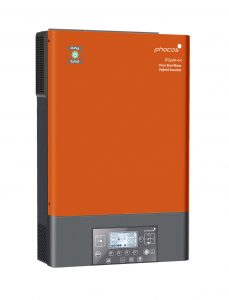
Lastly, we have Hybrid inverters. These are the most popular type of inverters in Zimbabwe nowadays because of their versatile functions. The term hybrid means something of different elements, and that is what a hybrid inverter is basically is: It can be used off grid, as well as on the grid. Some hybrid inverters have battery chargers and some also have net metering capabilities. Hybrid inverters can fit in many situations, depending on how many functions are fit into them. In Zimbabwe, many people like to operate their solar systems when Zesa switches off, and at the same time might want to charge their batteries from Zesa when the sun is not adequate. Those people need hybrid inverters. With some hybrid inverters you can also feed back to the utility under the net metering program. Therefore, a hybrid inverter can suit any needs.
If we choose to go deeper with this discussion, we will also discover that each of the 3 types of the inverters are classified into three categories. Namely; square wave inverters, modified wave inverters and pure sine wave inverters. However, we will leave that for another day.
5. Can I go off grid with solar?

The good news is yes. Since we now know that there are off grid solar inverters, and hybrid solar inverters, it is very possible to go off the grid with solar. Still and all, whether this is practical and economical depends on your appliances and your budget. To add on, there are some appliances which are better left out of your solar system. These are stoves, electric boilers, electric geysers, electric furnaces and you name it. These appliances are notorious of their use of heating elements which can damage your solar battery.
Now, looking on the bright side, if appliances with heating elements are not part of your property, it is very possible to totally go off the grid. Nevertheless, you might need a standby generator to charge up your batteries in case of a sustained period of bad weather. Still in that case, in Zimbabwe it happens less often.
6. Will I pay for electricity if I go solar?

It is possible not to be paying a penny towards your electricity bill if you go solar. That said, this also depends on one or two factors. These are (1); the size of your solar system, (2); your maximum demand of power and lastly, your usage patterns. If all the three are optimized to suit each other, you will always enjoy free power from the sun.
In addition, with the newly introduced Net Metering program, you can strike the balance between what you generate from solar, and what you can use from Zesa. Now that we have mentioned net metering, let’s talk about it for a minute
7. What is net metering?

Zesa put the net metering program as a project to boost power generation in our country. The program enables all Zesa customers with solar systems to feed excess solar power into the Zesa lines at an incentive. The incentive is electricity units credited in the customer’s meter, which are proportional to the units they have fed into the grid. To complete the setup, a grid tied inverter, or a hybrid inverter which is certified to do net metering is required to be part of your solar installation. Upon applying for the program and paying a connection fee for the connection and for the bi-directional meter, you will be accepted into this project. It is also very important to get a competent solar installer to install your solar system for you, because Zesa will also inspect weather your installation was done properly.
If you want to apply for the net metering program, you can download the applications form on the ZETDC website and submit them to your nearest ZESA depot.
If you need us to help with connecting you to the net metering project, kindly get in touch with us.
for further reading…
However, who really benefits from the net metering project? We wrote all you need to know about solar net metering. Kindly click here or the button below:
8. What size of solar system should I get?
This is a very important question if you are thinking about solar. After all, you need not to guess the size of your solar system because any good solar installer is able to calculate that for you. Nevertheless, let me walk you through the information that your solar installer needs in order to design you a good solar system.
why do you want to install solar?

First of all, you need to define the reason why you want to go solar. This piece of information is important because it makes your solar installer figure out what type of solar system you need. Some people install solar because they want to beat the boredom in case of power outages, whilst others do not even have a Zesa line near them. Others also need to cut their bills by means of the net metering program and others are excited about contributing to slowing down climate change by going green. Therefore, you need to clarify why you need a solar system so that you get an appropriate solar system design.
What do you want to power with solar?

Secondly, you need to identify which appliances in your house need to be powered on solar. For example, one might only need a solar system for home entertainment whilst another needs to power all their electrical appliances. If your installer knows this, they will also determine the size of inverter and solar panels required to fulfil your needs.
On a third note, inform your installer whether you already have electricity or not. This also helps them to determine the type of inverter you require, as well as the quantity of solar panels needed. In addition, if your installer knows whether you have Zesa already or not, they will design a suitably sized battery bank that matches your needs.
how long will your appliances run per day?
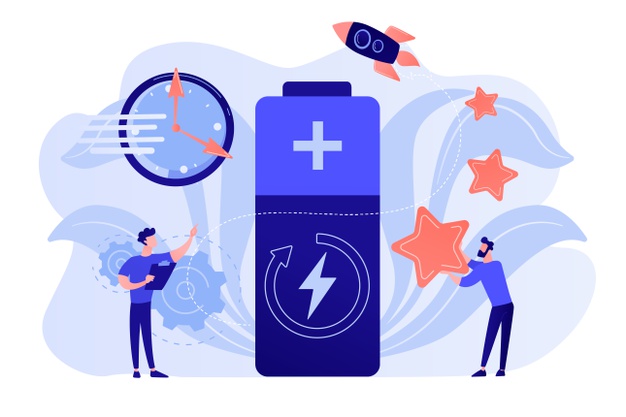
Number four is knowing an estimated time, in hours, each appliance is going to be used on solar per day. Knowing this will give your solar installer a chance to accurately design the size and type of battery bank you need.
What is your budget?

Lastly but not least, is your budget. As a customer, you might desire that solar powers everything in your home. Your budget however determines whether this is possible. After knowing your budget, a good installer will recommend an alternative to what you need if your budget is not enough. This can be a smaller option which can be upgraded gradually until you get the system you require.
for further reading…
To read about all you need to know about solar concerning the average costs of installing solar for your home, kindly click here or the button below. we wrote about it.
However, if you want a functional installation, you need to work with a reputable solar installer. How do you choose one? Let us find out in the next question.
9. How do I choose a solar installer?
A good budget alone is not going to give a good solar system. If you do not get the right installer everything will be lost. As a matter of fact, getting an incompetent person for a solar installation is as good as riding a bicycle with rectangular wheels. It will take you nowhere!
So how do you separate the chaff from the wheat?
First of all, your installer needs to be reputable. It is good to get referrals of work that your installer has done before. Sometimes you might be fortunate to see a happy someone who had their solar system installed. Instead of trying to compete with them, or feel jealous, why not ask them politely who did their installation. Generally, people like to be appreciated for the things they have, and if you talk to them nicely, they can take you through their solar system. As a result, you will get the feel of working with a particular installer before you even engage them.
In the same light, the Zimbabwe Energy Regulatory Authority (ZERA) did part of the work for you. They listed companies that registered with them. These companies went through a standard vetting process and you can as well benefit from it free of charge. Download the list of companies registered with ZERA as of October 2020 here:
Nonetheless, it is not to say once you have discovered that a particular company has been registered with Zera, you just engage them headlong. It is wise to do due diligence. Ask for referrals, and if possible, visit sites where they did their projects.
for further reading…
We outlined all you need to know about solar concerning getting the best solar quotation and how best to do your solar project.
You will discover that it is not easy to get a very good installer. But, once you get them, you are almost certain to get your installation done the right way.
Still, others might think its better they save themselves the work of finding a solar installer. They reason they could just source out material and do the installation themselves. Does this work? Read through our last segment and find out.
10. Can I install solar by myself?
Well, if you have hands, legs, eyes and literate, it is possible to do it yourself. But still it depends.
Firstly, it depends with the size of a solar system we are talking about. We have seen small solar kits labelled DIY [ Do It Yourself]. These come with a set of instructions on how you can connect everything in place. Well, you can agree with me that those are fairly very small solar systems which can do your lighting and charging your phones or play your little radio. However, as things get bigger, you need tones of information and exposure about wiring a successful solar installation. As solar systems get bigger, they need careful design, considering all factors about what you want to power up.
Secondly, it depends with the knowledge you have in electrical engineering. A solar system is basically electrical energy, and safety precautions ought to be taken to avoid serious accidents. Installing solar without adequate knowledge is risking losing money, equipment or even life. I have witnessed many people buying solar equipment twice after they had tried to do it by themselves. We do not discourage anyone to do a solar installation themselves. However, we encourage you to first do your homework thoroughly, otherwise sometimes it is best you leave it to the professionals.
for further reading…
Fortunately, we wrote about all you need to know about solar on How to do a solar installation. To read more, click the button below:
About us
At Taqon Electrico, we love customers that make informed decisions especially on issues to do with solar. We believe it is easier to work with a well-informed client, whilst it is very difficult to work with a client who is not. That is why we spend time and resources to try and educate you on all you need to know about solar. At the end of the day you get a functional solar solution. We encourage people to go solar, so we try to make sure people do not get disappointed with solar through these weekly educational tips.
In the same light, we encourage you to work with us. This is so because we believe we always give the best experience when it comes to solar. To talk with us instantly on WhatsApp, please click the button below. We will be happy to assist you.
Do not forget to always put on your mask. Be safe from COVID-19.





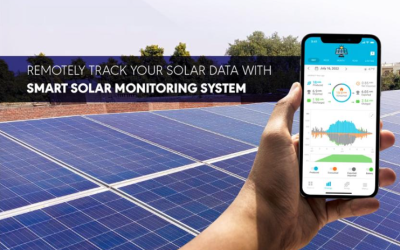
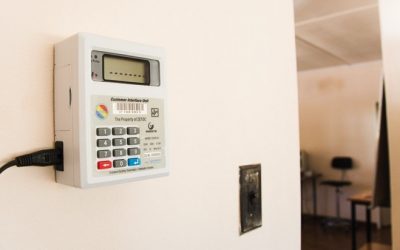
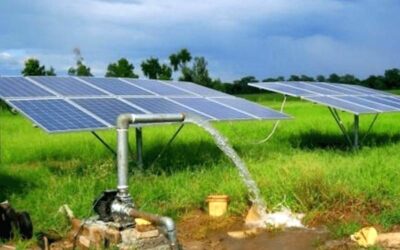

Lithium battery
kindly contact us on WhatsApp on +263 772 771 036 if you need any further assistance. thank you for reading through.